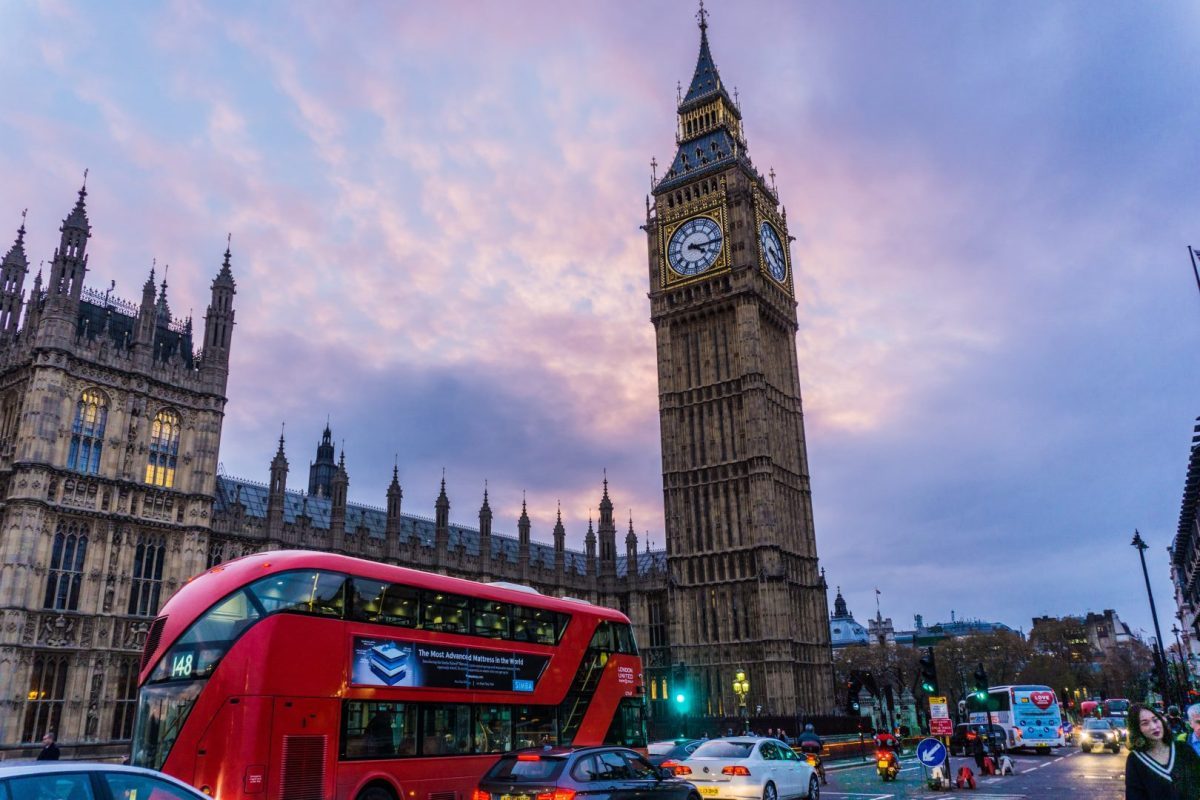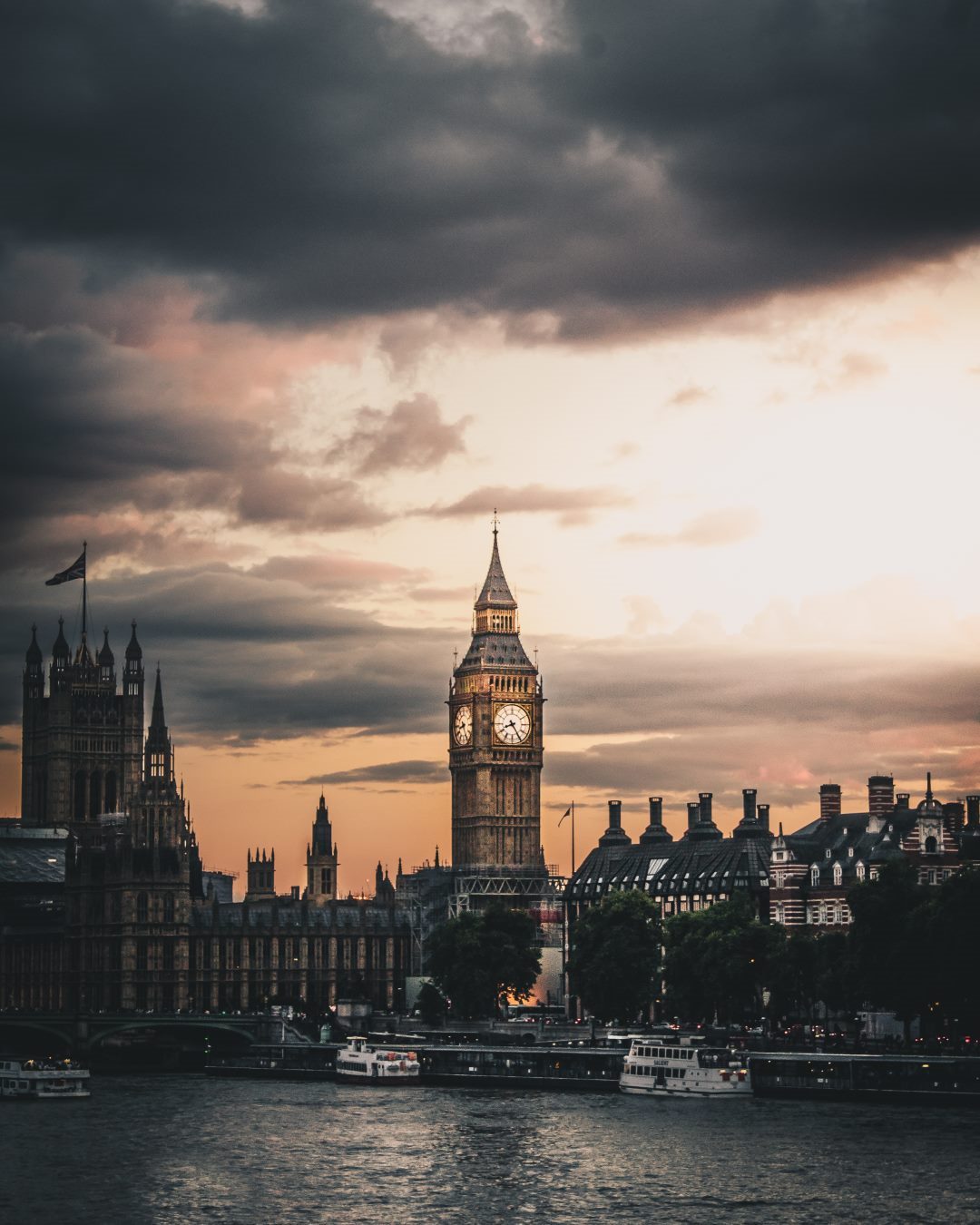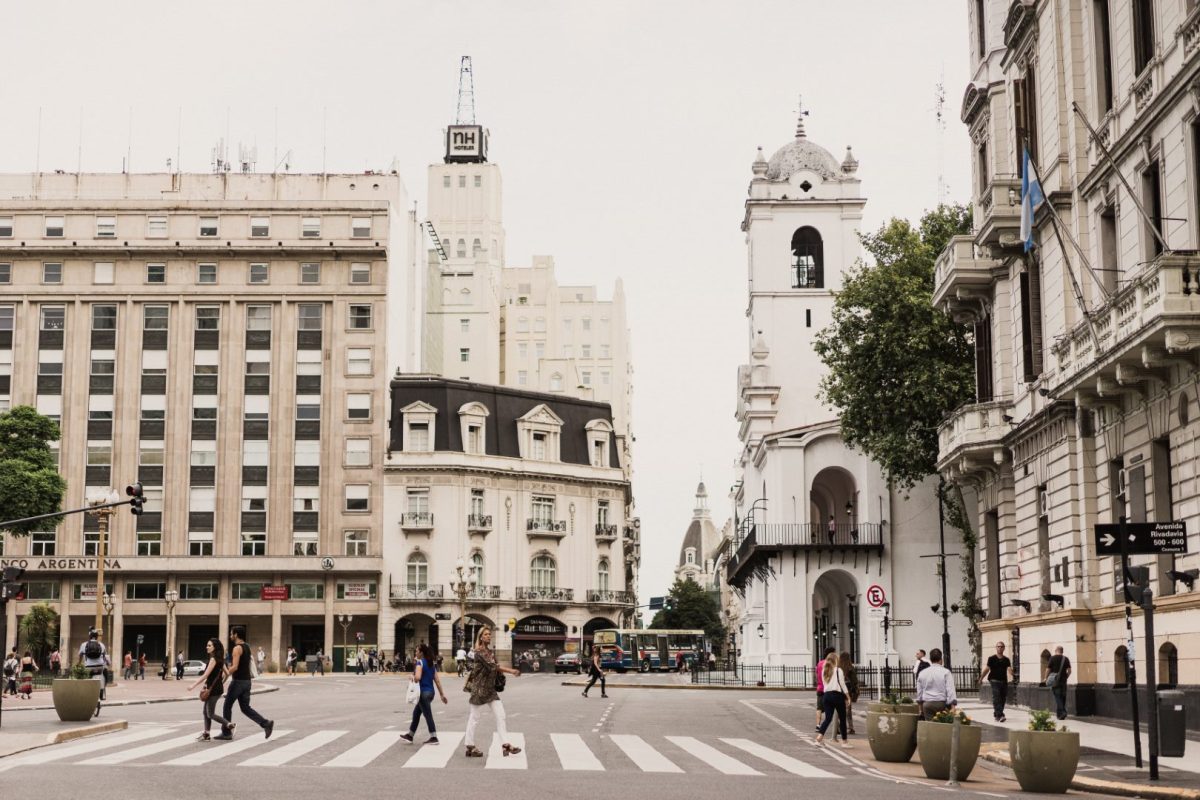How to Plan Your London & United Kingdom Tour: Camera Rental
Are you planning a trip to London and the United Kingdom and want to capture your experiences in high quality? Renting a camera can be a cost-effective and hassle-free way to document your travels. Here’s a guide on how to plan your London and United Kingdom tour with a camera rental.Experience
The camera rental experience provides access to high-quality equipment that can help you capture professional photos. With flexible rental periods, you can rent as little or as long as you need. This cost-effective experience is a great alternative to buying a camera you may only use for one trip.Rental Details
When considering camera rental, be sure to check the rental period available. It’s important to check if the rental includes hotel pickup and drop-off to make transportation hassle-free. A carrying case is also essential to ensure your equipment stays secure and travels safely with you.Capture Your Memories
With a rented camera, you’ll have all the tools to capture the best moments of your London and United Kingdom tour. Whether you’re exploring iconic landmarks or hidden gems, a high-quality camera can help you document your experience with professional-grade images.Booking Your Camera Rental
Booking your camera rental is easy and quick. Simply visit the following link: book the tour here and select your preferred rental period. Be sure to include any special requests, such as hotel pickup or drop-off. After submitting your rental request, you’ll receive confirmation and further instructions on pickup and drop-off.Book Your Tour Now
Renting a camera for your London and United Kingdom tour is an excellent way to capture high-quality images without breaking the bank. With access to professional equipment and hassle-free rental periods, you can focus on enjoying your trip while capturing memories that will last a lifetime. Book your camera rental today and get ready to capture the sights and sounds of the vibrant city of London and the beautiful United Kingdom.
Frequently Asked Questions about London
London is a sprawling and historic city known for its iconic landmarks, rich history, diverse culture, and world-class museums. Whether you’re a first-time visitor or a seasoned traveler, here are some commonly asked questions about exploring London.
1. What are some must-see landmarks in London?
London has no shortage of iconic landmarks that visitors should add to their itinerary, including:
- Big Ben and the Houses of Parliament: the clock tower and parliamentary buildings are a symbol of London and can be seen from many parts of the city.
- The Tower of London: this historic fortress is home to the Crown Jewels and offers a glimpse into the city’s brutal past.
- Buckingham Palace: the official residence of Queen Elizabeth II, visitors can watch the Changing of the Guard ceremony outside the palace.
- The London Eye: one of the world’s largest Ferris wheels offers stunning views of the city skyline.
- The British Museum: this world-renowned museum showcases artifacts from around the globe, including the Rosetta Stone and the Elgin Marbles.
2. What is the best way to get around London?
London has an extensive public transportation system that includes buses, trains, and the iconic London Underground. The most convenient and cost-effective way to get around is to purchase an Oyster Card, which can be used on all forms of transportation. Visitors can also opt to take a hop-on, hop-off bus tour to get an overview of the city’s landmarks.
3. Are there any free things to do in London?
London offers plenty of free activities for budget-conscious travelers, including:
- The British Museum: as mentioned above, admission to this museum is free (although donations are appreciated).
- The National Gallery: this iconic art museum also offers free admission.
- The Tate Modern: visitors can view contemporary art for free at this museum located on the banks of the Thames river.
- The Changing of the Guard: as also mentioned earlier, watching this ceremonial event at Buckingham Palace is a popular free activity.
- Hyde Park: this sprawling park features walking paths, gardens, and even a lake, and is free to visit.
4. What is the best time of year to visit London?
The best time to visit London largely depends on personal preferences. Summer (June through August) typically offers warmer temperatures and longer days, making it a popular time to visit. However, this also means larger crowds and higher prices. Spring and fall (April through May and September through October, respectively) offer milder weather and fewer crowds, but keep in mind that London can be quite rainy year-round. Winter (November through March) can be cold and damp, but the holiday season can be a magical time to visit, with holiday lights and decorations throughout the city.
5. What is the local cuisine like in London?
London has a diverse food scene with options ranging from traditional British fare to international cuisine. Some local dishes to try include fish and chips, pie and mash, and bangers and mash. Visitors can also find a range of ethnic food options, including Indian, Chinese, and Middle Eastern cuisine. The city also boasts a thriving street food scene, with food markets throughout the city offering a variety of dishes.
6. What should I know about London’s history?
London has a rich and varied history dating back to Roman times. The city has survived numerous plagues, fires, and wars, and has played a significant role in shaping world history. Some notable events in London’s history include the Great Fire of London in 1666, the Blitz during World War II, and the hosting of the 2012 Olympic Games. Visitors can learn more about London’s history at museums like the Museum of London and the Imperial War Museum.
7. How can I experience London’s theater scene?
London’s West End is known for its vibrant theater scene, with a wide range of shows on offer. Visitors can purchase tickets for popular shows like “Hamilton” and “The Phantom of the Opera” in advance, or opt to purchase same-day tickets at discounted prices from the TKTS booth in Leicester Square. Alternatively, visitors can also catch performances at smaller theaters throughout the city, which often offer more affordable ticket prices.
8. What are some day trips that can be taken from London?
London is located in close proximity to a number of historic and picturesque towns that make for great day trips. These include:
- Bath: this charming town is known for its Roman baths and Georgian architecture.
- Cambridge: this university town features stunning architecture and scenic river views.
- Stonehenge: visitors can explore the iconic prehistoric stone circle located just outside of London.
- The Cotswolds: this area of outstanding natural beauty is known for its quaint villages and rolling hills.
- Oxford: another historic university town, Oxford boasts lovely architecture and beautiful gardens.
9. What is the currency used in London?
The currency used in London (and throughout the United Kingdom) is the British pound, represented by the symbol £. Visitors can exchange currency at banks and exchange bureaus throughout the city, or withdraw cash from ATMs using their debit or credit cards.
10. What should I pack for a trip to London?
What you pack largely depends on when you plan to visit and what activities you have planned. Generally speaking, visitors should pack comfortable walking shoes, weather-resistant clothing (including an umbrella), and an adapter for electrical outlets (as outlets in the UK use a different plug type than many other countries). Visitors should also bring any necessary travel documents, including passports and visas, and any medications or prescriptions they may need.
With so much to see and do in London, it’s no wonder that it’s a popular destination for travelers from around the world. Whether you’re interested in history, culture, or just soaking up the atmosphere of this vibrant city, London has something for everyone.

How to Spend Your Time as a Tourist in London?
London is among the most visited cities in the world, offering an endless variety of attractions, landmarks, museums, and eateries that you don’t want to miss out on. Planning your itinerary in advance can save you time and money and make the most of your London trip. Here’s an ultimate guide on how to plan your London trip that ensures you have an unforgettable experience.1. Explore London’s iconic landmarks
There are plenty of well-known landmarks in London, and you’re spoilt for choice when deciding which ones to visit. Here are a few iconic tourist attractions you shouldn’t miss:a) The London Eye
The London Eye is one of the largest Ferris wheels in the world, giving you a chance to see the city’s stunning views from above. And it is situated on the South bank of the River Thames. It’s the best place to take some fantastic shots and selfies to be published on your Instagram.b) The Tower of London
One of London’s most historic landmarks, the Tower has served as a royal palace, a fortress, and a prison throughout its 900-year history. Not only can you explore the Tower’s history, but you can also see the Crown Jewels.c) Buckingham Palace
Visiting the Queen’s home is one of the must-do experiences in London, especially during the summer months when the Changing of the Guards parade happens. You can also see some of the perfectly maintained gardens and the State Rooms.d) Big Ben and the Houses of Parliament
Big Ben is one of the world’s most recognizable landmarks, and it is a clock tower that has chimed since 1859. The tower is located in the same building as the Houses of Parliament, where the UK’s lawmakers create laws in the meeting rooms.e) Trafalgar Square
Trafalgar Square is a public square in the heart of London, named to commemorate the British naval victory at the Battle of Trafalgar. In the middle of the square stands the famous Nelson’s Column, guarded by four enormous lions.2. Visit London’s world-famous museums and galleries
London is home to so many world-class museums and galleries, so allocate some extra time in your itinerary to enjoy their offerings. Most of these museums offer free admission with a permanent display:a) The British Museum
The British Museum is one of London’s most famous tourist attractions and is free for visitors. The museum contains over eight million artifacts covering human history from its earliest days to the present day.b) The Natural History Museum
One of London’s most popular museums, it has some of the most extensive natural history specimens in the world, including fossil skeletons and dinosaur exhibits. The museum is free to enter.c) Tate Modern
The Tate Modern is the UK’s national gallery of modern and contemporary art situated in the former Bankside Power Station. It offers free admission to some of its permanent collections with no charge.d) The National Gallery
The National Gallery boasts an extensive collection of paintings and art from the 13th to mid-19th century from famous artists such as Van Gogh, Michelangelo, and Rembrandt. Admission to the National Gallery is entirely free.3. Explore London’s vibrant neighborhoods
London is home to many unique neighborhoods, each filled with its unique history, architecture, and vibe. Here are some areas that offer an array of things to see and do:a) Camden
Camden is a trendy neighborhood with street markets, live music venues, and street performers. Visit Camden Market and explore the fantastic street-food stands, vintage and new fashion, and unique souvenir shops.b) Notting Hill
Notting Hill is a charming, colorful, and affluent neighborhood known for its architecture, historical significance, and the world-famous Portobello Road Market.c) Greenwich
Greenwich is a tranquil southeast London suburb on the banks of the Thames that has played a significant role in British naval history. The Greenwich Royal Observatory is a great place to see the Prime Meridian and learn about space and time travel.4. Sample London’s diverse cuisine
London’s culinary scene is one of the most diverse and exciting in the world, with plenty of options to suit any dietary preference. Here are some of the must-try London dishes and recommended eateries to try them.a) Fish and Chips
For an authentic taste of London, try hot, crispy fish and chips served with tangy tartar sauce, vinegar, and a slice of lemon. Head over to The Seashell of Lisson Grove, Poppies Fish and Chips, or The Golden Hind to try this classic dish.b) Afternoon Tea
Afternoon tea is one of the quintessential British treats, consisting of tea, dainty sandwiches, scones, and pastries. Head over to sketch, The Ritz or Claridge’s, where you’ll immerse yourself in the most British of traditions and stunning ambiance.c) Indian curry
Curry is one of the most popular dishes in the UK, making it an unmissable part of a trip to London. Try some of the best curries at Dishoom, Gymkhana, or Hoppers Soho.Book Your Tour Now
London has something to offer every traveler – from iconic landmarks and world-class museums to diverse cuisine and vibrant neighborhoods. Plan your itinerary, book ahead for attractions, get an Oyster card to get around the city, and embark on an exciting trip to one of the world’s greatest landmarks.Table of Contents

